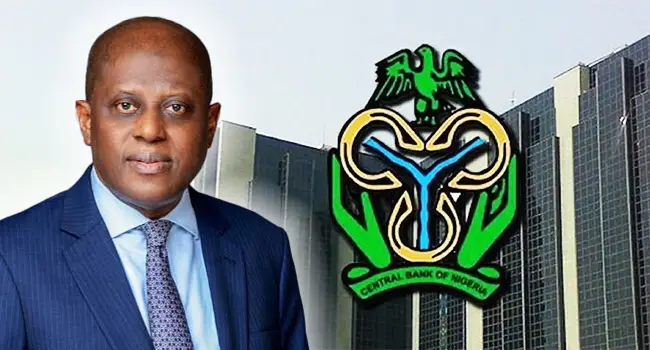Breaking News
Rising FX Inflows, Stricter Market Controls Behind Naira Stability — CBN
The Central Bank of Nigeria says rising FX inflows, tighter market controls and a return to orthodox monetary policy are driving recent Naira stability. CBN’s Victor Eboh highlights improved reserves, unified FX access, stronger investor confidence and continued efforts to curb inflation.

The Central Bank of Nigeria (CBN) says the recent stability in the foreign exchange market is the result of stronger FX inflows, tighter market oversight, and a return to orthodox monetary policy.
Dr. Victor Eboh, Director of Monetary Policy at the CBN, disclosed this in Abuja during a Business, Economy and Financial Training for Journalists organised by the Premium Times Academy in partnership with the apex bank.
According to Eboh, the CBN’s current policy direction aims to rebuild trust and transparency in the FX environment. He noted that the Naira had long been “overvalued”, and the present management allowed market forces to determine a more realistic exchange rate by eliminating distortions and preferential FX allocation.
He recalled that the exchange rate had spiked to around ₦1,800 per dollar at the peak of volatility but has since stabilised at approximately ₦1,440 per dollar in the official market.
Eboh stressed that the administration prioritises rate stability over an unsustainable artificially strong Naira:
“Whether you are a big man or not, we all go to the same market now for dollars. There is no longer unauthorised access to FX. Stability is more important than a strong Naira that cannot be sustained.”
The CBN director said increased transparency and unified market access have boosted investor confidence and driven higher FX inflows. He added that Nigeria’s external reserves have risen to over $43 billion, providing nine months of import cover—a level he described as impressive compared to other West African economies.
“In Ghana, the import cover is about three months. Some West African countries have barely six weeks. Nigeria currently stands at nine months. We have a lot of good news to report,” he said.
Eboh also noted that Nigeria’s balance of payments and current account remain in surplus, supported by initiatives designed to improve FX liquidity and strengthen the external sector.
Addressing inflation, he acknowledged that lending rates remain high but insisted that monetary tightening is necessary to restore stability:
“High inflation is a limitation to growth. It is not about having money in your hand but about what that money can buy.”
He explained that the CBN has fully reverted to orthodox monetary policy, focusing strictly on its core mandates and leaving fiscal interventions to the government:
“The Central Bank cannot be Minister of Agriculture, Minister of Aviation and Minister of Transportation at the same time. That is why we have returned to full orthodoxy.”
Eboh assured Nigerians that the banking sector is stable despite the ongoing recapitalisation exercise, noting that the exercise is proactive and aimed at positioning banks to support President Bola Tinubu’s $1 trillion economy target.
He added that the CBN is keeping a close watch on monetary aggregates to prevent excessive money supply growth and urged journalists to track indicators such as money supply, broad money, and currency in circulation when reporting economic trends.
Eboh concluded that the CBN will sustain measures to stabilise the exchange rate, tackle inflationary pressures, and maintain the strength of the financial system.
Opinion Nigeria News









